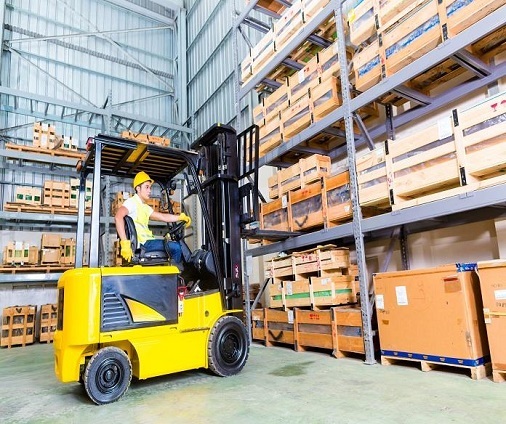The importance of Forklift Safety Training (Counterbalance)
Every day, forklifts cause serious injuries and deaths. In order to prevent these accidents, it is important for everyone involved to be aware of the hazards and take the necessary precautions. Forklift operators need to be familiar with the equipment and understand how to safely operate it, while those working around forklifts need to know how to stay safe when they’re in the vicinity.
The most important part of preventing forklift accidents is training. A well-trained operator is much less likely to be involved in an accident than one who has had no training or minimal instruction. Therefore, employers should provide thorough and up-to-date safety training for all operators and those working nearby. The training should cover topics such as proper use of the equipment, loading/unloading procedures, and other safety issues.
In addition to training operators and those working around forklifts, employers should also take steps to ensure that the workplace is as safe as possible. This can include performing regular inspections of the equipment, making sure that all required safety devices are in place and in good working order, and maintaining records of all safety-related occurrences.
By taking the necessary measures to ensure that everyone working with or around forklifts is properly trained and the workplace is safe, employers can significantly reduce the risk of serious accidents. No one wants to be responsible for a tragedy caused by an operating error or negligence. Taking steps to ensure the safety of those involved is not only the smart and responsible thing to do, it can also result in major financial savings due to fewer accidents and lower insurance premiums.
At the end of the day, forklift safety training is essential for protecting everyone involved. It’s a simple step that can have a tremendous impact on preventing tragedy and reducing costs. Employers should make sure that their employees are properly trained and the workplace is safe in order to protect everyone from the potential hazards of forklift accidents.
Introduction to Forklift Safety Training (Counterbalance)
In order to prevent forklift accidents, it is important for everyone involved to be aware of the hazards and take the necessary precautions. Forklift operators need to be familiar with the equipment and understand how to safely operate it, while those working around forklifts need to know how to stay safe when they’re in the vicinity.
The most important part of preventing forklift accidents is training. A well-trained operator is much less likely to be involved in an accident than one who has had no training or minimal instruction. Therefore, employers should provide thorough and up-to-date safety training for all operators and those working nearby.
The training should cover topics such as proper use of the equipment, loading/unloading procedures, and other safety issues. In addition to training operators and those working around forklifts, employers should also take steps to ensure that the workplace is as safe as possible. This can include performing regular inspections of the equipment, making sure that all required safety devices are in place and in good working order, and maintaining records of all safety-related occurrences.
By taking these measures, employers can significantly reduce the risk of serious accidents. No one wants to be responsible for a tragedy caused by an operating error or negligence. Taking steps to ensure the safety of those involved is not only the smart and responsible thing to do, it can also result in major financial savings due to fewer accidents and lower insurance premiums. At the end of the day, forklift safety training is essential for protecting everyone involved. It’s a simple step that can have a tremendous impact on preventing tragedy and reducing costs.
Reasons why it is important
There are many reasons why it is important for employers to provide forklift safety training for all operators and those working nearby. The training should cover topics such as proper use of the equipment, loading/unloading procedures, and other safety issues. In addition to training operators and those working around forklifts, employers should also take steps to ensure that the workplace is as safe as possible. This can include performing regular inspections of the equipment, making sure that all required safety devices are in place and in good working order, and maintaining records of all safety-related occurrences.
By taking these measures, employers can significantly reduce the risk of serious accidents. No one wants to be responsible for a tragedy caused by an operating error or negligence. Taking steps to ensure the safety of those involved is not only the smart and responsible thing to do, it can also result in major financial savings due to fewer accidents and lower insurance premiums. At the end of the day, forklift safety training is essential for protecting everyone involved. It’s a simple step that can have a tremendous impact on preventing tragedy and reducing costs.
Some reasons why it is important for employers to provide forklift safety training include:
- It can prevent serious accidents from happening
- It can help to protect the safety of those working nearby
- It can save money by reducing insurance premiums
- It helps to ensure that operators understand how to correctly and safely use the equipment
Who needs to be trained and why
Employers should provide forklift safety training for all operators and those working nearby because it can prevent serious accidents from happening. It can also help to protect the safety of those working nearby, save money by reducing insurance premiums, and ensure that operators understand how to correctly and safely use the equipment.
What Forklift Safety Training (Counterbalance) should include
Forklift Safety Training (Counterbalance) should include a comprehensive overview of the equipment, how to safely operate it, and loading/unloading procedures. In addition, operators should be familiar with the potential hazards associated with using a forklift and know how to avoid them. Training should also cover how to properly secure a load, what to do in the event of an accident, and other important safety information.
Instruction for operators
Operators need to be familiar with the equipment and understand how to safely operate it. They should also be aware of the potential hazards associated with using a forklift and know how to avoid them. In addition, operators should be familiar with the loading/unloading procedures and know how to properly secure a load.
Hazards of working near a forklift and how to mitigate them
Working near a forklift can be dangerous, especially if you’re not familiar with the hazards associated with them. Some of the most common hazards include:
- The forklift operator being unaware of your presence
- The forklift overturning
- The forklift striking you
- The forklift catching on fire
To mitigate these hazards, it’s important to be aware of the dangers and take precautions when working near a forklift. Here are a few tips:
- Never enter the path of a moving forklift
- Stay out of the way of the forks and don’t stand behind or in front of them
- Use caution when walking around the forklift and never walk under a raised load
- Keep a safe distance from the forklift when loading or unloading cargo
- If possible, avoid working near a forklift altogether.
Forklift accidents can cause serious injury or death, so it’s important for everyone to be aware of the hazards and take the necessary precautions. Operators need to be familiar with the equipment and understand how to safely operate it, while those working around forklifts need to know how to stay safe when they’re in the vicinity.
By taking these measures, employers can significantly reduce the risk of serious accidents. No one wants to be responsible for a tragedy caused by an operating error or negligence. Taking steps to ensure the safety of those involved is not only the smart and responsible thing to do, it can also result in major financial savings due to fewer accidents and lower insurance premiums. At the end of the day, forklift safety training is essential for protecting everyone involved. It’s a simple step that can have a tremendous impact on preventing tragedy and reducing costs
Click here to book onsite Forklift Safety Training (Counterbalance) sessions
Click here for more information about Forklift Safety Training (Counterbalance) as per the Government of Canada
Click here for WSIB training information


